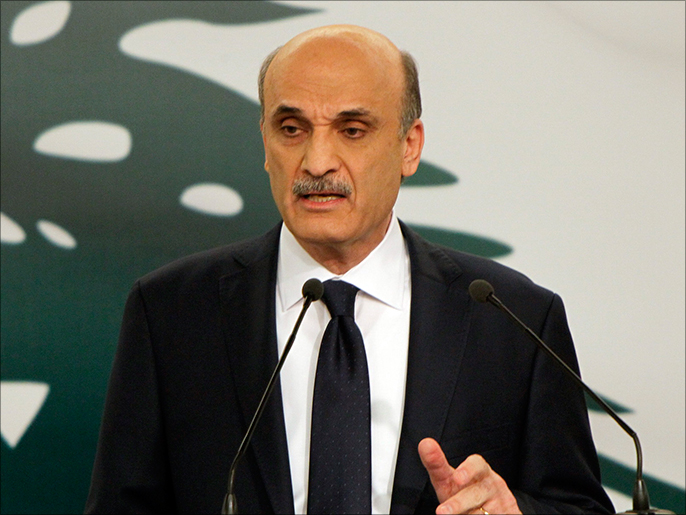Mutual accusations intensified over last Thursday's clashes in Beirut;
Both Hezbollah and the Lebanese Forces Party issued successive statements regarding the responsibility of the other side for these bloody events.
The head of the Lebanese Forces Party, Samir Geagea, described the clashes - which took place in the Tayouneh area (south of the capital) and resulted in the death of 7 people - as a miniature Christian version of the events of May 7, 2008 in which Hezbollah took control of part of Beirut.
Geagea said - in conversations with the local media yesterday evening, Friday - that it was necessary to act with the Christians to confront what he called "Hezbollah's attempt to kill the investigation into the explosion of the port of Beirut."
But at the same time, he denied that his party had planned the violence that took place in Tayouneh.
pre-event meeting
Geagea stressed that the meeting held by his party leadership the day before the events was completely political, and was aimed at discussing options for action if Hezbollah succeeded in its endeavor to isolate the judicial investigator in the Beirut port explosion case.
He added that those who bear responsibility for what happened to the protesters in Beirut are their leaders who dragged them to that very place, as he put it.
Geagea accused Hezbollah of trying to kill the investigation into the Beirut port explosion (Al-Jazeera - Archive)
Earlier, a Hezbollah leader blamed the Lebanese Forces for what happened, in a speech he delivered during the funeral ceremony of a number of those killed in the clashes on Friday.
The head of Hezbollah's Executive Council, Hashem Safi al-Din, said that the aim of what happened was to ignite sedition, considering that what happened was an ambush that targeted civilians.
He accused the Lebanese Forces party of planning a "new civil war" at the behest of the United States and funding from Arab parties, he said.
He stressed that the party would not be drawn into a civil war, but at the same time it would not let the blood of its martyrs go to waste, as he put it.
The events began with heavy shooting during a demonstration organized by supporters of Hezbollah and the Amal movement to denounce the decisions of the judicial investigator in the case of the Beirut port explosion - Judge Tariq Al-Bitar - and to demand his dismissal.
The clashes took place with machine guns and heavy shells for about 5 hours in the area, which is dozens of meters from the Palace of Justice, despite the rapid deployment of army units in the site, which is one of the former front lines during the civil war (1975-1990), where it separates the Shiite-majority area of Shiah. And the area of "Ain El-Remmaneh - Badaro", which has a Christian majority.
Seven people were killed, most of them belonging to Hezbollah and the Amal movement, and more than 30 people were wounded.
Among the dead was a woman with five children who was shot in the head while she was inside her home.
19 people arrested
As part of the preliminary investigations, the Lebanese security services arrested 19 people on charges of their involvement in the clashes, according to the official media agency.
Yesterday, Friday, the agency said that the military judiciary assigned the army intelligence to conduct preliminary and field investigations, and also asked the State Security and Public Security and the Information Division of the Internal Security Forces to conduct the necessary investigations.
And she added that the military judiciary also requested a comprehensive survey of all surveillance cameras in the area, to determine the identities of all gunmen from both sides.
Meanwhile, Al-Jazeera correspondent Catherine Hanna said that there is concern in Lebanon about the impact of these events on the work of Najib Mikati's government.
She added that it is not clear whether Mikati will be able to call for a cabinet meeting under these circumstances, as the government faces the risk of paralysis about a month after its formation.

